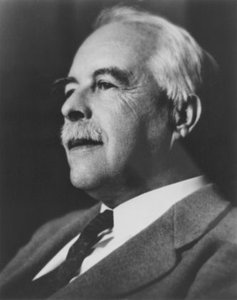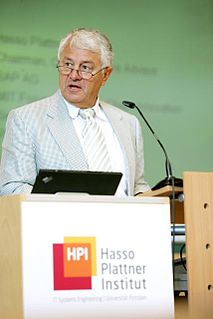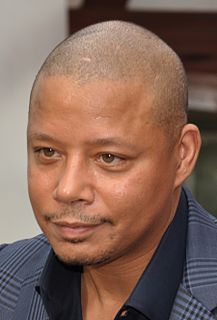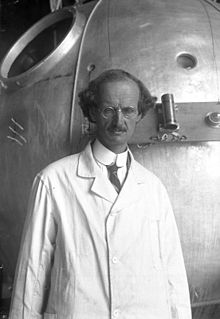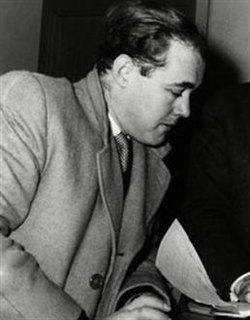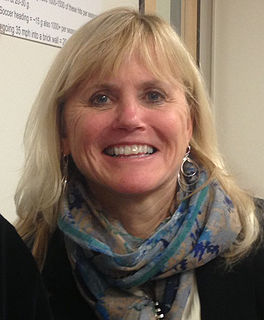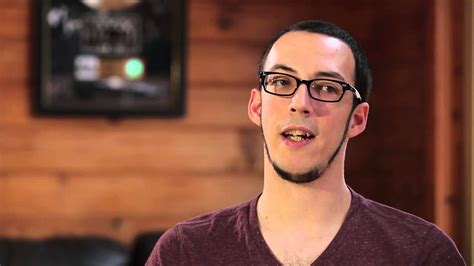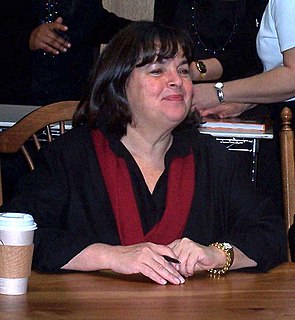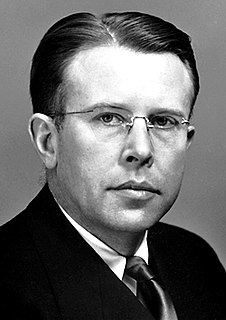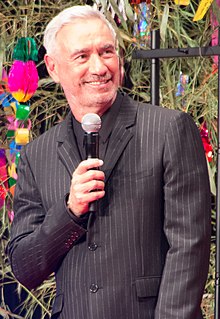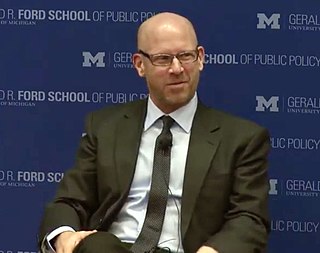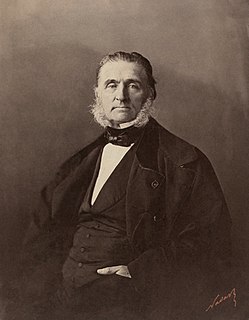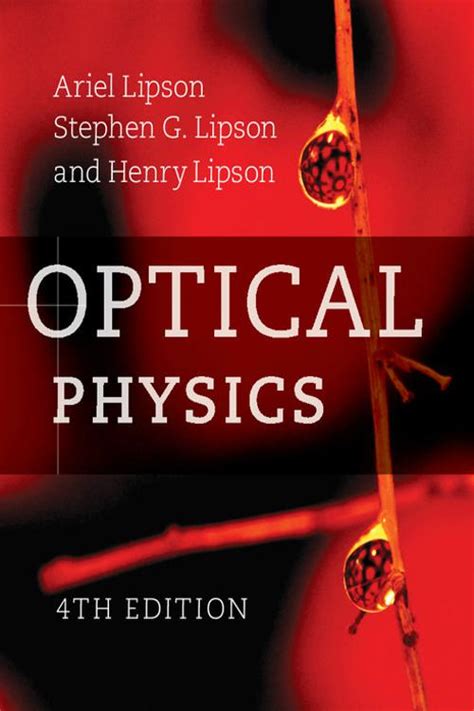Top 1200 Great Scientist Quotes & Sayings - Page 3
Explore popular Great Scientist quotes.
Last updated on April 15, 2025.
People take it for granted that the physical world is both ordered and intelligible. The underlying order in nature - the laws of physics - are simply accepted as given, as brute facts. Nobody asks where they came from; at least not in polite company. However, even the most atheistic scientist accepts as an act of faith that the universe is not absurd, that there is a rational basis to physical existence manifested as law-like order in nature that is at least partly comprehensible to us. So science can proceed only if the scientist adopts an essentially theological worldview.
My mother made me a scientist without ever intending to. Every other Jewish mother in Brooklyn would ask her child after school, So? Did you learn anything today? But not my mother. Izzy, she would say, did you ask a good question today? That difference - asking good questions - made me become a scientist.
I am among those who think that science has great beauty. A scientist in his laboratory is not only a technician: he is also a child placed before natural phenomena which impress him like a fairy tale. We should not allow it to be believed that all scientific progress can be reduced to mechanisms, machines, gearings, even though such machinery has its own beauty.
Every artist, every scientist, must decide now where he stands. He has no alternative. There is no standing above the conflict on Olympian heights. There are no impartial observers. Through the destruction, in certain countries, of the greatest of man's literary heritage, through the propagation of false ideas of racial and national superiority, the artist, the scientist, the writer is challenged. The struggle invades the formerly cloistered halls of our universities and other seats of learning. The battlefront is everywhere. There is no sheltered rear.
There is nothing little in God; His mercy is like Himself-it is infinite. You cannot measure it. His mercy is so great that it forgives great sins to great sinners, after great lengths of time, and then gives great favours and great privileges, and raises us up to great enjoyments in the great heaven of the great God.
The scientist is a practical man and his are practical (i.e., practically attainable) aims. He does not seek the ultimate but the proximate. He does not speak of the last analysis but rather of the next approximation. His are not those beautiful structures so delicately designed that a single flaw may cause the collapse of the whole. The scientist builds slowly and with a gross but solid kind of masonry. If dissatisfied with any of his work, even if it be near the very foundations, he can replace that part without damage to the remainder.
Scientific discovery is a private event, and the delight that accompanies it, or the despair of finding it illusory, does not travel. One scientist may get great satisfaction from another's work and admire it deeply; it may give him great intellectual pleasure; but it gives him no sense of participation in the discovery, it does not carry him away, and his appreciation of it does not depend on his being carried away. If it were otherwise the inspirational origin of scientific discovery would never have been in doubt.
Using any reasonable definition of a scientist, we can say that 80 to 90 percent of all the scientists that have ever lived are alive now. Alternatively, any young scientist, starting now and looking back at the end of his career upon a normal life span, will find that 80 to 90 percent of all scientific work achieved by the end of the period will have taken place before his very eyes, and that only 10 to 20 percent will antedate his experience.
Scientific wealth tends to accumulate according to the law of compound interest. Every addition to knowledge of the properties of matter supplies the physical scientist with new instrumental means for discovering and interpreting phenomena of nature, which in their turn afford foundations of fresh generalisations, bringing gains of permanent value into the great storehouse of natural philosophy.
There's a great difference between knowing that a thing is so, and knowing how to use that knowledge for the good of mankind. Thetrouble with a scientist is we quickly tire of our discoveries. We hand them over to people who are not ready for them, while we go off again into the darkness of ignorance, searching for other discoveries, which will be mishandled in just the same way when the time comes.
I'll tell you what you need to be a great scientist. You don't have to be able understand very complicated things. It's just the opposite. You have to be able to see what looks like the most complicated thing in the world and, in a flash, find the underlying simplicity. That's what you need: a talent for simplicity.
Historically, girls have not been encouraged to be scientists, to be explorers, and there's a social kind of constraint, of course. Having the responsibility, a disproportionate part of the responsibility, for caring for families, caring for children. I know this challenge from firsthand experience because I have three children and four grandsons.And some of the time I have spent as a scientist and as an explorer has meant choosing to not be with my children and grandchildren as much as I might otherwise have done had I not been a scientist, an explorer.
You get these moments of thrill. There you are, at 3:00 in the morning, and you know something about how we evolved that nobody else in the world knows. It's a thrill of discovery. You make this breakthrough, and you find something. It's this wonderful, wonderful scavenger hunt when you got to the end. It's just so great to be a scientist.
Not only do you need great lyrics, a great message, a great story, great vocals, great chords... you also need great instrumentation, great editing, great sonics, great mixing, and great mastering. It all comes together to make something truly great, and I think each element combines together to create a powerful impact on the consumer.
I think that when we know that we actually do live in uncertainty, then we ought to admit it; it is of great value to realize that we do not know the answers to different questions. This attitude of mind - this attitude of uncertainty - is vital to the scientist, and it is this attitude of mind which the student must first acquire.
The day when the scientist, no matter how devoted, may make significant progress alone and without material help is past. This fact is most self-evident in our work. Instead of an attic with a few test tubes, bits of wire and odds and ends, the attack on the atomic nucleus has required the development and construction of great instruments on an engineering scale.
Certain signs, some of them visible to the layman as well as the scientist, indicate that we have been watching an ice age approach for some time without realizing what we are seeing... Scientists predict that it will cause great snows which the world has not seen since the last ice age thousands of years ago.
Like music or art, mathematical equations can have a natural progression and logic that can evoke rare passions in a scientist. Although the lay public considers mathematical equations to be rather opaque, to a scientist an equation is very much like a movement in a larger symphony. Simplicity. Elegance. These are the qualities that have inspired some of the greatest artists to create their masterpieces, and they are precisely the same qualities that motivate scientists to search for the laws of nature. LIke a work of art or a haunting poem, equations have a beauty and rhythm all their own.
Scientists are educated from a very early time and a very early age to believe that the greater scientist is the scientist who makes discoveries or theories that apply to the greatest ambit of things in the world. And if you've only made a very good theory about snails, or a very good theory about some planets but not about the universe as a whole, or about all the history of humankind, then you have in some sense accepted a lower position in the hierarchy of the fame of science as it's taught to you as a young student.
The leading student of business propaganda, Australian social scientist Alex Carey, argues persuasively that “the 20th century has been characterized by three developments of great political importance: the growth of democracy, the growth of corporate power, and the growth of corporate propaganda as a means of protecting corporate power against democracy.
No one really understood music unless he was a scientist, her father had declared, and not just a scientist, either, oh, no, only the real ones, the theoreticians, whose language was mathematics. She had not understood mathematics until he had explained to her that it was the symbolic language of relationships. "And relationships," he had told her, "contained the essential meaning of life."
I think that we're making a mistake if we don't see that there is a cultural basis to many illnesses, not just psychiatric ones. Breast cancer would be one prevalent example right now, different kind of cultures surrounding it. If you don't understand the cultural meaning of an illness like that you're going to miss the boat even if you're a great scientist.
I believe it to be of particular importance that the scientist have an articulate and adequate social philosophy, even more important than the average man should have a philosophy. For there are certain aspects of the relation between science and society that the scientist can appreciate better than anyone else, and if he does not insist on this significance no one else will, with the result that the relation of science to society will become warped, to the detriment of everybody.
All great human deeds both consume and transform their doers. Consider an athlete, a scientist, an artist, or an entrepreneur. In service of their goals, they lay down time, energy and many other choices and pleasures; in return, they become most truly themselves. A false destiny may be spotted by the fact that it consumes without transforming, without giving back the enlarged self.
You should not use your fireplace, because scientists now believe that, contrary to popular opinion, fireplaces actually remove heat from houses. Really, that's what scientists believe. In fact many scientists actually use their fireplaces to cool their houses in the summer. If you visit a scientist's house on a sultry August day, you'll find a cheerful fire roaring on the hearth and the scientist sitting nearby, remarking on how cool he is and drinking heavily.
Creativity has three layers; the ultimate is the mystic: he lives in a climate of creativity. The poet, once in a while, brings some treasures from the beyond; the scientist, also very rarely, but whenever he can visit the ultimate he brings something precious to the world. But one thing is certain - mystic, scientist or poet, whatsoever comes into this world comes from the beyond. To bring the beyond is creativity. To bring the beyond into the known is creativity. To help God to be manifested in some form is creativity.
Darwin's book, On the Origin of Species, was published in 1859. It is perhaps the most influential book that has ever been published, because it was read by scientist and non- scientist alike, and it aroused violent controversy. Religious people disliked it because it appeared to dispense with God; scientists liked it because it seemed to solve the most important problem in the universe-the existence of living matter. In fact, evolution became in a sense a scientific religion; almost all scientists have accepted it and many are prepared to 'bend' their observations to fit in with it.
I always wanted to be a scientist. I don't really have any writer friends. The process of being a writer is much more interior than being a scientist, because science is so reactionary. I think that all research scientists think of themselves as belonging to a grand tradition, building on work that has been worked on since the very beginning of science itself. Whereas I'm not sure writers think of themselves in the same way.
I am a man and alive. For this reason I am a novelist. And, being a novelist, I consider myself superior to the saint, te scientist, the philosopher, and the poet, who are all great masters of different bits of man alive, but never get the whole hog....Only in the novel are all things given full play.







